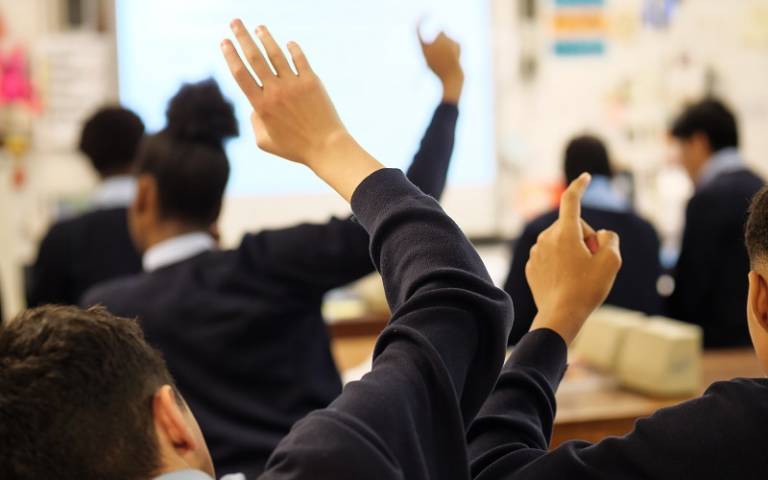IOE research centre wins BERA public engagement and impact award
18 November 2020
UCL Centre for Holocaust Education has won the British Educational Research Association (BERA) 2020 Public Engagement and Impact Award.

The Centre, part of UCL Institute of Education, won the Team Award for its work on tackling widespread myths and misconceptions about the Holocaust through teacher training and sustained support for schools.
The BERA Public Engagement and Impact Award recognises and celebrates the impact of research and practice in the education community and how both have demonstrably engaged the public.
The Centre joins a number of IOE award winners. In 2019, the Maximising the Impact of Teaching Assistants (MITA) project received the team award, while Professor Louise Archer won the 2018 BERA Public Engagement and Impact Award, and Drs Alice Bradbury and Guy Roberts-Holmes the 2016 Award.
The team awarded this year includes Dr Alice Pettigrew, Professor Stuart Foster, Dr Becky Hale, Dr Andy Pearce, Dr Eleni Karayianni and Dr Arthur Chapman.
Dr Pettigrew said: “I am really delighted that BERA have recognised the work of our Centre in this way. One of the things I have always most valued in working as part of this team is its absolute and ongoing commitment to producing research that can - and does - directly inform and support creative classroom practice and that is immediately relevant to teacher and student needs and concerns.”
The Centre for Holocaust Education is the only specialist institute supporting teachers on Holocaust education in the classroom, using the best in contemporary research. Through continuing professional development (CPD), resources and Beacon Schools, it helps teachers to deepen students’ understanding of the Holocaust so they can think for themselves.
In the past year, the Centre collaborated with the Holocaust Educational Trust to deliver a Department for Education-funded national educational programme to commemorate and expand students’ knowledge of Bergen-Belsen and its liberation. Survivor of the Holocaust Mala Tribich MBE praised the Centre’s involvement in the initiative, saying it exemplifies its “critical importance for the field, informing the work that Holocaust education organisations across the country and survivors like me do when we engage with teachers and students”.
Centre research has also demonstrated the problematic and imprecise nature of many depictions of the Holocaust within school textbooks. In 2020, it published its own empirically-informed alternative, the first secondary school textbook to directly confront widespread student misconceptions. More than 30,000 copies of ‘Understanding the Holocaust’ were distributed to 1,000 secondary schools across England reaching over 1 million students annually. A second print run is planned for early in the New Year and full class-sets remain free of charges to teachers who complete a short online CPD.
During the recent lockdown, the Centre produced 34 high quality lesson-plans and online materials accessed by approximately 3,000 individuals as well as three, self-guided, online CPD courses completed by more than 2,000 practicing teachers. The team’s response to the challenges of the Covid-19 pandemic is a testament to its commitment to ensure robust empirical research is utilised to build capacity and transform teaching in schools.
Most recently the Centre has launched a Massive Online Open-Access Course (MOOC), ‘Teaching the Holocaust: Innovative Approaches to the Challenges We Face’ developed in collaboration with Yad Vashem (Jerusalem). Over 1,000 participants from 88 different countries worldwide registered to take part within just three weeks of the course launching. Registration remains open for any other interested participants until 6 December.
Links
- UCL Centre for Holocaust Education
- Find out more about the Centre for Holocaust Education's work: 'Celebrating our Impact' (29 November 2021)
- View Dr Alice Pettigrew’s research profile
- Department of Curriculum, Pedagogy and Assessment
- Listen to the IOE Podcast: ‘Research-informed practice for History and Holocaust Education | RFTRW: S04E02’
- BERA Public Engagement and Impact Award
Image
Image: Phil Meech for UCL Institute of Education
 Close
Close

